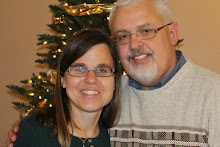A wife of noble character who can find? She is worth far more than riches. (Proverbs 31:10)
Charm is deceptive, and beauty is fleeting; but a woman who fears the Lord is to be praised.(Proverbs 31:30)
Put on your hip-waders, I’m about to step into a bit of controversy. I hope that the waters won’t get too deep.
We’ve all heard it said that “behind every successful man is a good woman,” but let’s invert the equation. It’s one thing to use Proverbs 31 as a measuring rod for the ‘ideal woman,’ but how often have we (as men) stopped to think that about our role as husbands to give our wives the freedom to be this kind of person.
The first readers of this passage would have marvelled at two things: First at the wonderful example of what we have come to call a virtuous and godly woman, but secondly at the husband who treats his wife differently than the prominent view of the culture of the day. This was a radical thought in the culture of King Lemuel, the author of this chapter.
Paul’s understanding in the New Testament was equally radical for the culture of his day. After he encourages us to be filled with the Spirit (Ephesians 5:18), he goes on to say that this filling will be worked out in a husband who will truly loves, cherishes, and encourages his wife (Ephesians 5:25-32).
Is Proverbs 31 an idealistic model for our wives to reach? Perhaps, but it is also the standard of a man who sees the true value of his wife, seeks her advice in their decisions, and encourages her to be all that she can be. This puts the shoe on the foot and asks; who can find a husband of noble character?
For further investigation, read David Sanford’s article by the same title:
POST-SCRIPT: A Note to those who took the Proverb-a-Day Challenge
This ends our month-long journey through the book of Proverbs. I trust it has been encouraging and that you will continue to daily spend some time in God’s word. Keep on this path; it will lead to life.

